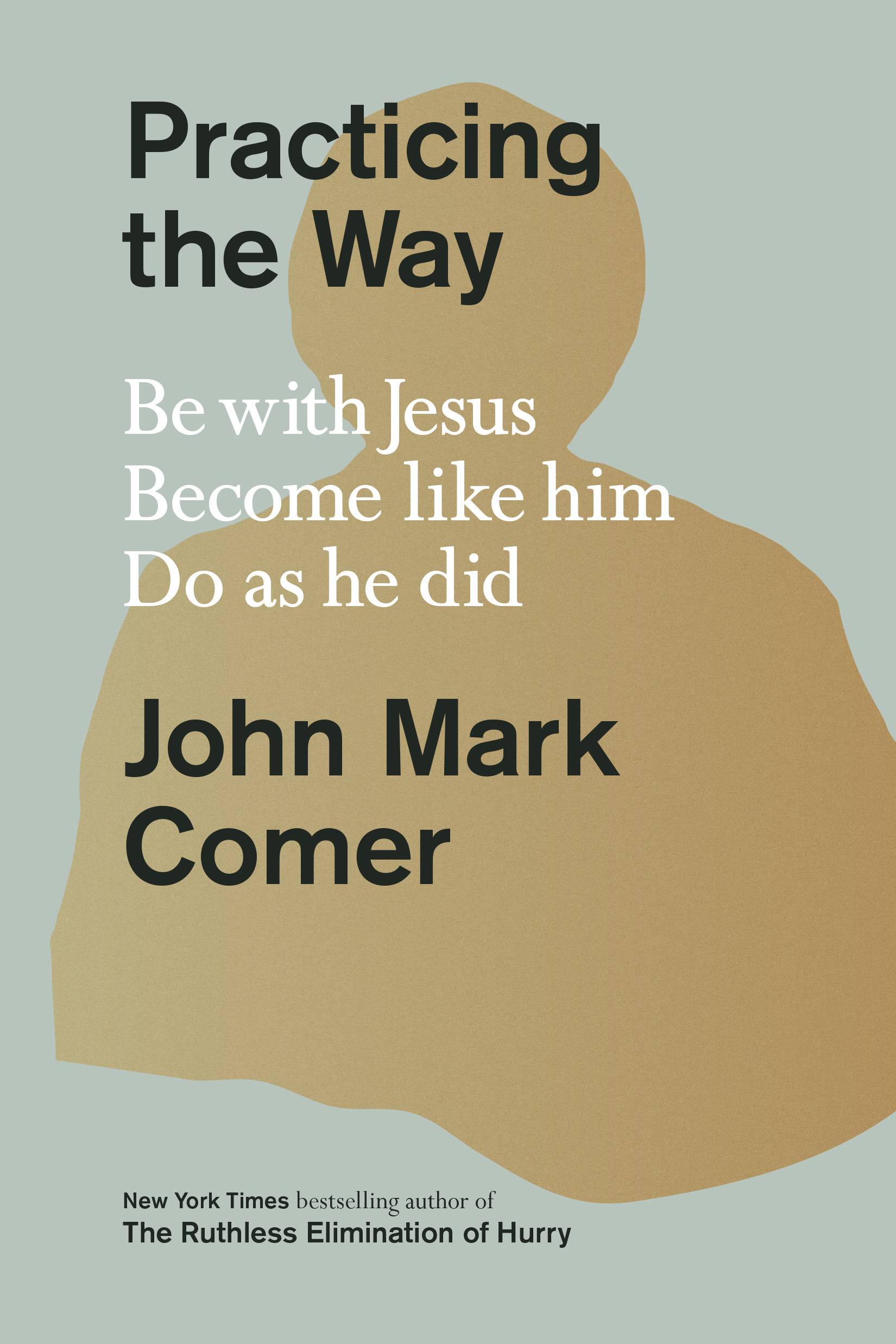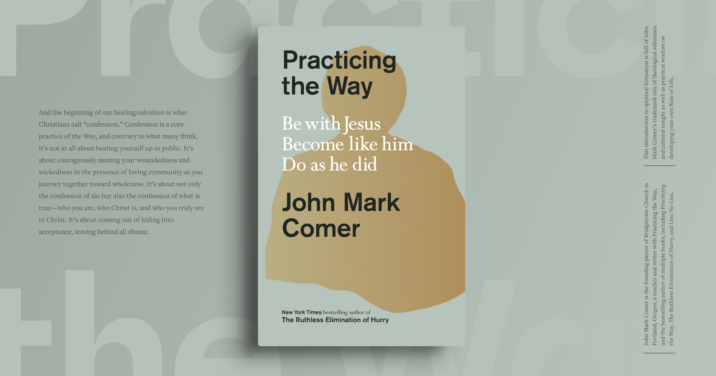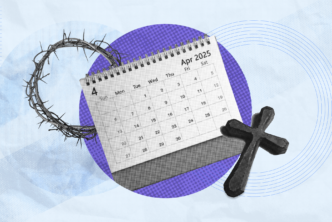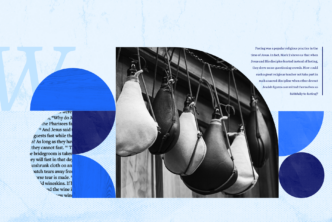
Practicing the Way by John Mark Comer
January 16, 2024 / WaterBrook / $26.00
ISBN: 9780593193822
Buy it from WaterBrook | Buy it from Logos
The following is an excerpt from Practicing the Way: Be with Jesus. Become like him. Do as he did. by John Mark Comer. It is published here with permission. Several headlines were added by the Word by Word editors.
The problem with sin in our spiritual formation journey
I recognize that a growing number of people have an emotional allergy to the word sin, but it is just the word we use to name the felt experience of the human condition that pretty much all luminary thinkers agree on. Whether ancient, modern, Eastern, Western, religious, or secular, they all harmonize on this specific point: Something is deeply off in the human heart.
It’s not just that we do terrible things; it’s worse—we often want to do terrible things. And even when we don’t want to do terrible things, we still get pulled into doing them, like a drug addict caught in a self-defeating loop.
The New Testament writers speak of sin as not just an action, but also a condition—of being in sin. We screw up, we offend, we hurt, we betray, we forget, we say things we regret. “To err is human.” Calling people “sinful” is no more judgmental than a doctor telling a patient they have a liver condition. It’s just honest.
To make progress in our formation, we must face our sin. Otherwise, the spiritual journey is like trying to run an ultramarathon with a broken leg and stage IV cancer. Good luck.
Now, stay with me for a few minutes because this next part is key for you to understand. In biblical theology, there are three dimensions to sin.
#1 Sin done by us
This is the most obvious. Repeat what I just said: We muck things up. We forget to call home on Mother’s Day; we have an affair; we disparage our children; we make excuses rather than apologize; we lie to save face; we ________.
Francis Spufford, the irreverent but witty author of Unapologetic: Why, Despite Everything, Christianity Can Still Make Surprising Emotional Sense, called it “HPTMTU”— shorthand for “the human propensity to muck things up.” (Only he didn’t use the word muck.)1
#2 Sin done to us
But sin done by us is not the only dimension. We’ve all been hurt, wounded, slighted, betrayed, abandoned, treated unjustly, falsely accused, slandered, gossiped about, stolen from—sinned against. We are both perpetrator and victim, guilty and wounded. One of the generational corrections that’s come from millennials and Gen Z (with all sorts of overcorrections, of course; that’s how it inevitably works) is the recognition that our wickedness is tied to our woundedness. “Hurt people hurt people,” as the saying goes, and it’s true.
Starting in our earliest days, we accumulate a coterie of painful memories that we carry implicitly in our bodies, and tragically, against all our best intentions, we often pass them on to those closest to us. Cue the heart-wrenching stats on the number of abusers who were abused, cheaters who were cheated on, criticizers who were criticized, and so on.
A key part of our spiritual journeys to wholeness, especially for those who have been through traumatic life experiences, is the healing of memories, in both our minds and our bodies. The mending of souls ruptured by sin done to us.
Finally, there is …
#3 Sin does around us
Because of our hyper-individualistic culture, we often miss this last dimension, but Scripture’s testimony is unequivocal: Our environment has warped us. Call it “secondary trauma,” as psychologists do, or “the world” as Jesus did; it’s like breathing secondhand smoke or toxic air—no one would hold you guilty in a court of law, but that doesn’t make it any less lethal.
This is one of the best ways to make sense of the Christian doctrine of original sin. Here’s Kallistos Ware:
The doctrine of original sin means … that we are born into an environment where it is easy to do evil and hard to do good; easy to hurt others, and hard to heal their wounds; easy to arouse men’s suspicions, and hard to win their trust. It means that we are each of us conditioned by the solidarity of the human race in its accumulated wrong-doing and wrong-thinking, and hence wrong-being. And to this accumulation of wrong we have ourselves added by our own deliberate acts of sin. The gulf grows wider and wider.2
This is so well said: We live in a world where it’s “hard to do good.”
Now, here’s why I offer you this threefold rubric (it’s not to depress you): Most people focus on dimension #1 of sin but not #2 and #3, and as a result, we don’t realize just how desperate our situation is.
One reason for this is that Western Christians (Protestant and Catholic, but especially Protestant) have predominantly thought about sin through the guilt/innocence paradigm—what theologians call a “forensic” (that is, legal) view of sin. The basic idea is that God is a morally serious God; he is not only loving and compassionate but also holy and just. We are guilty before his law of justice, and our only hope is Christ’s pardon. And the good news is that Christ is both “just and the justifier.”3
This is a biblical view, but it’s not the biblical view. It’s just the one that has been emphasized in the West for the last few centuries. Many people don’t realize there are all sorts of other paradigms (called “atonement theories”) to understand sin in the library of Scripture:
- Guilt/Innocence
- Honor/Shame
- Power/Fear
- Clean/Defiled
- Belong/Lost
- Shalom/Chaos
- Hope/Despair4
Just to name a few. All of these are true, and none of them contradict or compete for primacy. The problem is not that Westerners view sin through the lens of guilt/innocence, but that they often view it solely from this one angle and, in doing so, miss the full picture. Until we come to see sin as far more than the breaking of judicial laws, we will likely remain stuck in whole-life dysfunction.
Sin as a disease of the soul
To that end, one paradigm that I find especially helpful for spiritual formation purposes is the idea of sin as a kind of disease of the soul and salvation as the healing of the whole person. As the Christian psychologist and expert on trauma Dan Allender put it, “We seldom see sin, at first sight, as what it truly is—ill and deforming.”5
Jesus famously said, “It is not the healthy who need a doctor, but the sick. I have not come to call the righteous, but sinners to repentance.”6 In his analogy, sin was like a sickness and he was the doctor. Repentance wasn’t just pleading for mercy before a judge; it was opening your wounding to a physician. Based on this line, ancient Christians called Jesus “the doctor of the soul.”
Jesus as physician of the soul
Listen to Ignatius of Antioch, a first-century church father who was mentored by the apostle John. (This will give you insight into how early Christian leaders thought about salvation.) He said,
But our Physician is the only true God . . . Jesus the Christ. . . . He became subject to corruption, that He might free our souls from death and corruption, and heal them, and might restore them to health, when they were diseased with ungodliness and wicked lusts.7
Is this how you think about sin? As a fatal disease?
Is this how you think about Jesus? As the physician of the soul?
Few people realize that the Greek word translated “saved” in the New Testament is sōzō—a word that is often translated “healed.”8 So, in the Gospels, when you read that Jesus “saved” someone and then read that he “healed” someone, you’re often reading the exact same word. Jesus intentionally blurred the line between salvation and healing. Once, after healing a woman of a twelve-year chronic disease, Jesus said, “Daughter, your faith has healed you. Go in peace.”9 Some translations say “healed you,” and others say “saved you.” Why? Because salvation is a kind of healing.
Salvation is not just about getting back on the right side of God’s mercy through judicial acquittal; it’s about having your soul healed by God’s loving touch. Ironically, the same sin that keeps us from relationship with God can be healed only by God. Yet again, we need to be saved.
The practice of confession
And the beginning of our healing/salvation is what Christians call “confession.” Confession is a core practice of the Way, and contrary to what many think, it’s not at all about beating yourself up in public. It’s about courageously naming your woundedness and wickedness in the presence of loving community as you journey together toward wholeness. It’s about not only the confession of sin but also the confession of what is true—who you are, who Christ is, and who you truly are in Christ. It’s about coming out of hiding into acceptance, leaving behind all shame.
And confession is our part in dealing with sin. God is the physician; we’re the patient. All we can do is set our sin in his light. His job is to deal with our sin; our job is to confess our secrets. It’s to live in a way that is open, true, and laid bare before God in community.
The best example of confession I can think of is, again, from AA. When people say “Hi, my name is _____, and I’m an alcoholic” to introduce themselves, that’s confession, far more than saying sorry to God in our minds at church.
It’s highly likely that any working model of spiritual formation will bear all sorts of resemblance to AA,10 with its three elements of (1) radical self-awareness, honesty, and confession, (2) total surrender to God’s power, and (3) a loving, tight-knit community to both love you and hold you accountable to becoming your true self. Take away any one of these tripart elements, and the proverbial stool will fall.
What I’m saying is this: The journey to healing begins with naming your illness. As the activist James Baldwin once said, “Not everything that is faced can be changed; but nothing can be changed until it is faced.”11
The problem is: Human beings resist facing reality. The human capacity for self-deception is staggering. But when it comes to sin, ignorance is not bliss. It’s a cancer metastasizing through our bloodstreams. The diagnosis is essential to the cure. Over a millennia and a half ago, Evagrius Ponticus said, “The beginning of salvation is to condemn oneself.” He was just saying that until we name our sin and open our wound to God, we can’t be saved from it.
This means we must begin by setting all that we are before God’s loving eye. It is only when we are honest with God, others, and ourselves about all the ways we fall short of love that we enter into the transformational process of becoming more loving.
Put another way, the more we hide, the less we heal.
***

Excerpted with permission from pages 89–96 of Practicing the Way: Be with Jesus. Become like him. Do as he did. by John Mark Comer. Copyright © 2024 by John Mark Comer. All rights reserved. No part of this excerpt may be reproduced or reprinted without permission in writing from the publisher.
Buy it from WaterBrook | Buy it from Logos
- Francis Spufford, Unapologetic: Why, Despite Everything, Christianity Can Still Make Surprising Emotional Sense (New York: HarperOne, 2013), 27–28.
- Bishop Kallistos Ware, The Orthodox Way, rev. ed. (Crestwood, N.Y.: St. Vladimir’s Seminary, 1995), 62.
- Romans 3:26, ESV. This means he’s both a just judge and the one who died to justify us.
- This list was compiled from the teaching of Dr. Gerry Breshears, who first introduced me to the idea of atonement theories being like a multifaceted diamond. You can access his teaching on the Atonement in Lesson 21, “Life of Jesus,” of this theology course from Biblical Training: www.biblicaltraining.org/learn/academy/th104-a-guide-to-christian-theology.
- Dan B. Allender, Sabbath: The Ancient Practices (Nashville, Tenn.: Thomas Nelson, 2009), 7.
- Luke 5:31–32.
- Ignatius, “VII. Beware of False Teachers,” in The Epistle of Ignatius to the Ephesians: Shorter and Longer Versions, in Ante-Nicene Fathers, vol. 1, The Apostolic Fathers, Justin Martyr, Irenaeus, ed. Alexander Roberts and James Donaldson, Christian Classics Ethereal Library, https://ccel.org/ccel/schaff/anf01/anf01.v.ii.vii.html.
- Thayer’s Greek Lexicon, s.v. “sōzō,” Blue Letter Bible, www.blueletterbible.org/lexicon/g4982/esv/mgnt/0-1.
- Luke 8:48.
- As Dallas Willard said, “Any successful plan for spiritual formation … will in fact be significantly similar to the Alcoholics Anonymous program.” Renovation of the Heart: Putting on the Character of Christ, 20th anniv. ed. (Colorado Springs: NavPress, 2021), 83.
- James Baldwin, “As Much Truth as One Can Bear,” New York Times, January 14, 1962.







